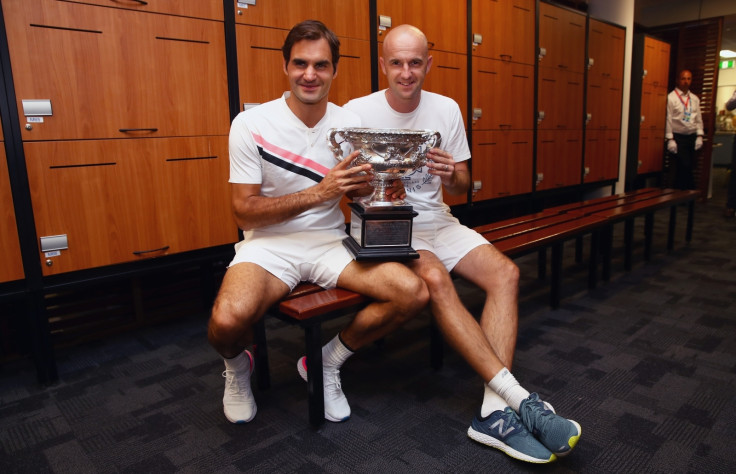'You have to pick your fights' says Federer's coach when training top players like Roger and Raonic
KEY POINTS
- Ljubicic joined Federer's coaching team prior to the 2016 season.
- Since the Croatian's arrival, Federer has won nine titles including three Grand Slams.
Roger Federer's coach Ivan Ljubicic has given an in-depth insight into coaching top players like the Swiss ace and prior to him Milos Raonic, who first entered the top 10 in the men's singles ATP rankings under the Croatian's guidance.
Ljubicic won ten ATP titles during his career which included the Indian Wells Masters in 2010. The 38-year-old was ranked as high as world number three in 2006.
Ljubicic retired from professional tennis in 2012 after which he progressed into television commentary for a short while before entering the fray as a coach. The Croatian's first coaching stint was with Canadian Raonic between 2013 and 2015.
Raonic made rapid strides under Ljubicic and in their first full season together in 2014, the 27-year-old entered the top 10 in the men's singles ranking. He made the semi-finals of the Wimbledon, which he lost to Federer, the finals of the Paris Masters, while also qualifying for his first ATP Finals in London.
Ljubicic has revealed that coaching at the top level involves a lot of listening and understanding the player as they have a lot of their own opinions. He admitted that the coach needs to be understanding and know which fights to pick in order to ensure the best results for the player, especially if it is a player that has been around for a while, which Federer has – this is his 20<sup>th year on the pro-circuit.
"When you talk about coaching at the highest level, you have to listen a lot," Ljubicic told ATP's official site. "The most important thing is to understand a player. Listen at the beginning, but then listening in general to understand and ultimately help a player."
"When you start with a player in the middle of a season, such as Milos, you can't step in and say, 'I want to change everything, because this is how I did it.' I feel that it doesn't work like that.
"You see, if you are coaching a player, who has been around for a while, he has his own patterns and ideas. His own opinions on a lot of stuff, and you have to pick your fights on what you think will have the biggest impact on a game or the result," he added.
The Croatian ended his partnership with Raonic after the 2015 season and joined Severin Luthi as part of Federer's coaching team for the 2016 campaign. Ljubicic is just two years older than the Swiss maestro's senior and they have faced each other 16 times during their career with the latter holding a 13-3 advantage.
Since Ljubicic joined Federer's camp, the 36-year-old has won nine titles which include three Grand Slams and reached the world number one for the first time since 2012. He accomplished all this after spending six months on the sidelines in 2016 with a knee injury.
The Croatian Davis Cup winner believes the player is the "boss" in the relationship and the coach's role is mainly to help the player get better in all aspects be it on court of off it. Ljubicic is also of the view that a coach needs to make an impact in the short-term to have a chance of reaching the long-term goals with a player.

"The biggest difference between coaching and playing is that the player is the boss," Ljubicic said. "The player has to be mentally strong, a leader, because on the court, he makes all of the decisions. Then, as a coach, you have to put your ego aside and make sure you do everything the player needs to compete better and be a better person."
"In coaching Milos or Roger, I never thought about short and long-term impacts. I think about how do I improve a player? How can this be better? What can be done? The truth is if you don't make a quick impact, there might not be any long-term goals. That's the tricky part.
"There is a fair amount of luck also, because you need to get results at the beginning and the confidence of a player. No matter how sure the player is in his confidence of a coach, if the results aren't there after a while, then all sorts of problems arise," he explained.






















